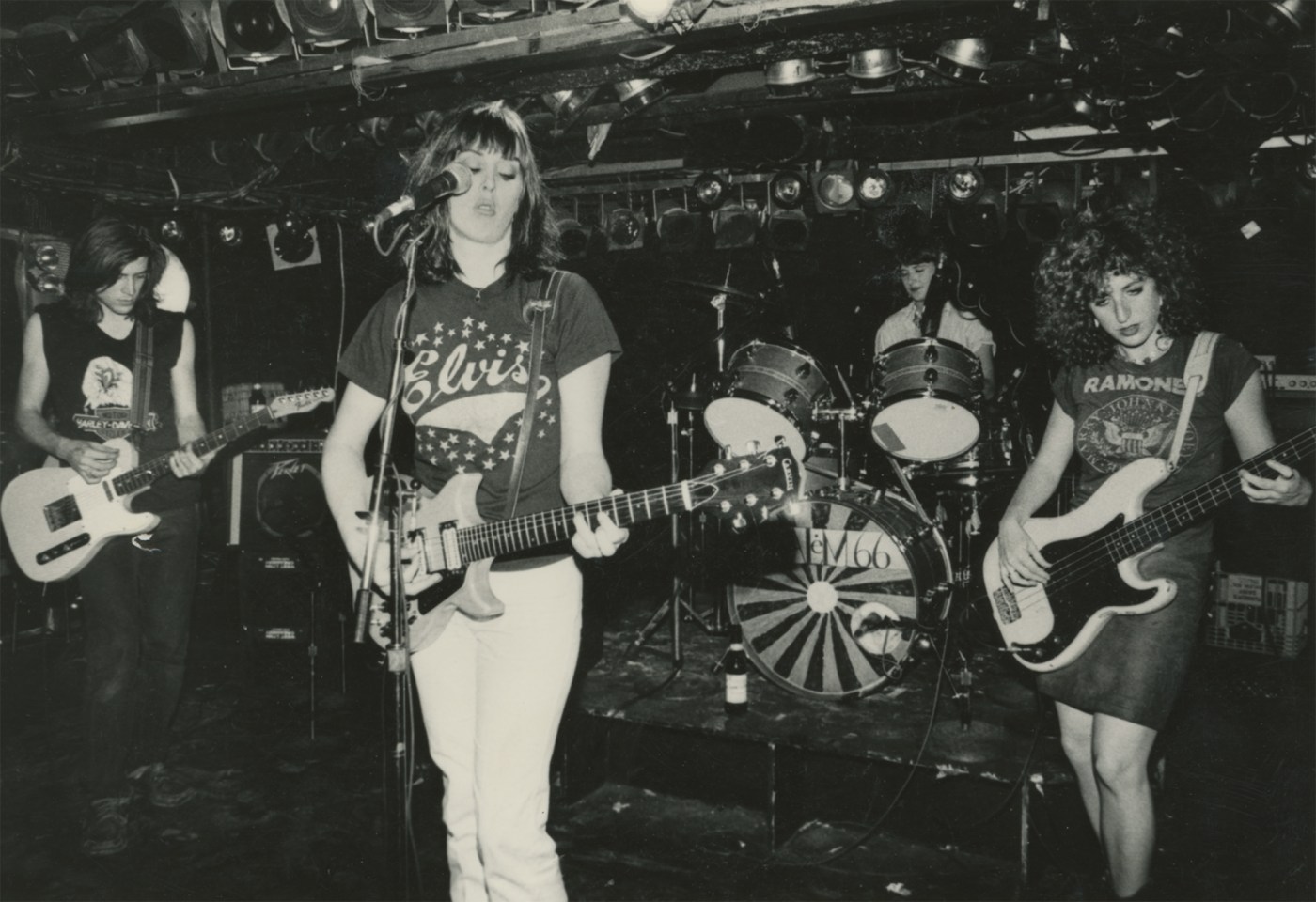
Comp album highlights 80’s faves Salem 66
The Boston scene in the ‘80s had plenty of grit and sweat, but it didn’t have a lot of elegance and mystery. Then Salem 66 came along.
Formed in 1981 and together about ten years, Salem 66 was initially one of Boston’s first all female bands (though a few guys were in later lineups), with a sound that veered between indie-pop and poetic folk-rock. They were a local favorite and had built a national following by the time of their breakup — yet they have never reunited and their music is long out of print. But this year, the indie label Don Giovanni — home of numerous cult heroes in a range of genres — proposed a compilation album and they accepted. The album, called “Salt,” culls ten highlights from their catalogue of four albums and one EP, and will be out later this spring.
True to their history, the album isn’t being titled or packaged like a conventional best-of. “Salt appears in a lot of our songs — salt water, tears, salt rubbing into a wound,” explains singer/bassist Beth Kaplan. “We wanted something very New England and we wanted that image of a shipwreck. It seemed very elemental, taking things back to earth.” The compilation, she said, came about after one of their songs was on a various-artists album last year. ”We saw one article that said ‘Maybe Salem 66’s time has come.’ We were happy that some of our songs were getting onto YouTube but we wanted people to hear them in the context of albums.”
Kaplan and singer/guitarist Judy Grunwald were the two constants in the band, equally sharing the writing and singing. “Having a new song was always the most fun thing ever,” Grunwald recalls in a joint Zoom interview. “We each brought them to rehearsal and everyone didn’t start blasting away — they would all do a deep listen and think about it. And that created a band sound that made the songs compatible.” Adds Kaplan, “In some funny way, we never thought there was anything unusual about us. We were just writing these songs that were in our head and playing music that just jelled with each other,”
They wound up playing with many of the era’s greatest bands; Dinosaur Jr. famously played their first gig opening for them. “We felt very humble,” Kaplan said. “We played with bands like the Raincoats and Husker Du, but I felt they were the pioneers. We were a little scrappier, more underground. During our last year we played a lot of label showcases in New York, those feeding-frenzy type shows, but nothing ever came of it.”
The band bowed out with its most upbeat and accessible album, “Down the Primrose Path” in 1990; but major labels still didn’t come calling. “We got a letter from one label that said women in bands was a trend that was descending, but we should keep them abreast — and definitely note that word,” says Grunwald. “People ask why we broke up, but bands are intense —you live in hotels together for years, you create and you suffer together. We always had a saying, that at least nobody died.”
Asked what they’ll say now when anyone proposes a reunion show, Grunwald gives a one-word answer: “No.” Both add that they’ve turned down a few offers in the past, since it’s been decades since either has been onstage. Still, the band figures deep in their personal history. “It’s like the summers of your childhood,” Grunwald says. “The band looms large in one’s subconscious because your 20’s are like that, it feels larger than it actually was in time. But both of us went onto lives that were not based in a music community.”
The closest thing to a reappearance will happen next month, when Kaplan guests at a record-release show for local guitar hero Chris Brokaw at the Streetcar in Jamaica Plain on May 17. It will be her first appearance onstage since 1997. “It was a huge surprise when Chris called and my first response was, absolutely not. But now I’m practicing away, we’ll do a couple Salem 66 songs, some of his and a couple covers. I’ll be in a band again for that one night.”

